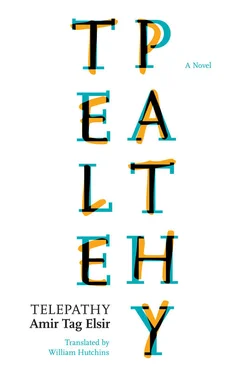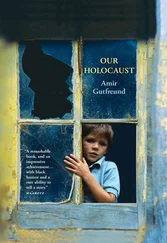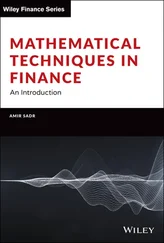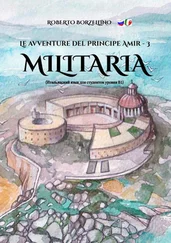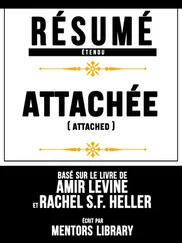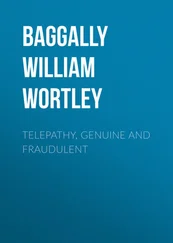“You are a long-time gardener who used to repeat, ‘A gardener can stake leaning branches and can also uproot the tree.’ Perhaps you don’t like Mr Zuhri’s stories. You will, however, cause others to like them if you say they are stories worth reading. So what do you say now?”
“Nothing,” I said as I gasped for breath. “Actually, nothing. I will play the part of the gardener. It won’t be my fault if this role isn’t successful and the seedling dies, in spite of my care for it.”
“Beautiful,” Asim said.
“Very beautiful,” Zuhri added as his tongue moistened his lips. “This is excellent.”
The two men had the final section of their pitch prepared and were about to deliver it. I knew that this was the case and sensed from Asim’s restlessness and from the way Zuhri kept rising aimlessly and sitting back down that a final significant and perhaps lethal blow would be added to this session of misfortune.
I decided to sock it to myself in order to alleviate its impact. “You also want me to finance the publication, isn’t that so? How much will it cost?”
This thrust seemed to have greatly relieved Asim Revolution, because his narrow eyes, which were exhausted from the weight of a lifetime, smiled and his meager white mustache danced a little jig. Zuhri seemed to be warbling, because I heard something that resembled trills of joy escape from his throat. I was as miserable as could be and attempting to claw my way out of this succession of crises. With extraordinary straightforwardness and without any further internal debate, I agreed to bankroll Zuhri’s collection with a sum that was not unreasonable and that was within my means, in addition to contributing the quotes that were attributed to me on the back cover. In this manner I hoped to neutralize one of the crises in order to devote myself to Nishan and poor Linda the Shadow.
No one would blame me for this if he knew my motives, and Zuhri would surely discover a reader who would be dazzled by his disasters and promote them. From my long experience in this field, I knew that even if malaria, rheumatic fever, and whooping cough wrote short stories through some intermediary, they would find readers who would savor their tales and bow respectfully before them. If lesions on the body, pimples, and disgusting secretions were narrated in any language, some reader would exclaim, “By God! By God, splendid!” I will never forget an American novel called Diabetes . All that happens in it is that the novelist goes to the bathroom and returns to watch a football game before he passes out. It racked up huge sales one year as readers fell over each other to purchase it.
I wanted these two guests, who were standing up, to leave my house immediately but noticed that Zuhri had left his brown notebook on the table, whether deliberately or inadventently, I didn’t know for sure. I said, “Please don’t forget your notebook.”
He replied, “I haven’t forgotten it. I’m leaving it so you can have a look at the stories as a group. I normally make a copy in another notebook.”
They had already departed when the theory, inspired by the cynicism that has haunted Muzaffar, my brother, since he became conscious of the world, leapt suddenly into my mind. Had what happened to my life actually been Shu‘ayb Zuhri’s devious plot to achieve this precise result — getting me to agree to support his weird literary efforts — meaning that Nishan Hamza had been merely a tool used ingeniously by the educated boy to achieve what he had now?
But such a result did not merit such an ambitious plot. Zuhri could have exerted pressure on me in some other less dangerous manner than this. He could have dispatched a respected friend to me to praise him. Besides, Imam Hajj al-Bayt had declared that Nishan Hamza actually was insane and that they were accustomed to his seasonal attacks. I didn’t think a religious man like Hajj al-Bayt would have become a tool in a plan as contemptible as this. Hajj al-Bayt had also referred to the truck driver Zakariya, a relative of Nishan’s, as living in Wadi al-Hikma, marrying a girl from Ethiopia, and leaving the country with her. He too had been a character in the novel.
I didn’t intend to cast aspersions on Hajj al-Bayt, but they headed his way despite my intentions.
Finally, where had Nishan gone when he fled from al-Nakhil Hospital?
Really — where had he gone?
This was what I had not been able to ascertain. There didn’t seem to be any possibility of finding out.
I deferred my suspicions for a time and began, motivated only by boredom and despair, to flip through the brown notebook that contained Shu‘ayb Zuhri’s collected stories — all of them, or so he said. Filled with the small, deliberate script characteristic of adolescent girls, the notebook was heavy and chockfull.
I read:
Giraffe
They placed her in a little cage in a crowded zoo. When they looked for her a number of days later they found her suckling the little cage with her tits.
As Wakeful as an Ant
A beggar asked me one day: “Can you sleep without giving a beggar alms?”
I replied, “Have no fear. I’m as wakeful as an ant.”
Contradiction
Near the Republican Palace I came upon contradictory opinions. I listened to some of them and my destiny changed.
Love
My true love asks, “What need is there for your talk about hearts — so long as you don’t pay the dowry and don’t marry me?” I replied that she’s the one who concludes the marriage.
I quickly lost interest, because I didn’t understand the point of these stories, which seemed to be mere arrangements of words, devoid of any pulse or narrative tension that would attract a reader. I started searching for the story “Worst City — Failed State”, from which the title of the collection was taken, thinking it might have some deeper significance. I finally found it halfway through the notebook. I was caught off guard when I discovered nothing but the title and a hundred question marks beneath it. These constituted the whole story.
I don't know when my suspicions regarding Nishan Hamza Nishan overpowered me with even greater audacity and completely seized control of me, but it most probably happened a number of days after the demise of Linda the Shadow. Her muscular dystrophy overwhelmed her respiration and had finally arrested it.
This was no easy blow to bear. It had been days and perhaps months since my portrait had been torn to pieces. I was reassembling its parts in my mind and restoring their beauty, whenever I had time alone.
Abd al-Qawi the Shadow delivered the news himself, one afternoon when I was drowning in the seas of my everyday life. After ending my self-imposed isolation, I was sitting by myself in a coffeehouse waiting for a literary critic I had promised to meet. I was thinking about everything and nothing in particular when I was surprised by a telephone call; despite my forebodings, I took the call.
He said, “Come help us bury your favorite reader, Writer. Linda has died.”
Then he hung up.
His voice was choked this time, the voice of a truly old man who was repulsed by the words on his lips. I imagined that it had required enormous effort just to speak in that choking voice instead of being strangled by the ropes of expressions that fathers typically use when they lose their sons or daughters.
I was unable to drive my car or even approach it. I left it where it was parked and took a taxi that pulled up suddenly beside me without my hailing it. I was surprised to find that the driver, who was more or less a young man and wore local garb and whose lower lip bulged with a wad of tobacco, knew me. He had stopped because he recognized me, at a time when cab drivers had become arrogant and wouldn’t stop for anyone.
Читать дальше
